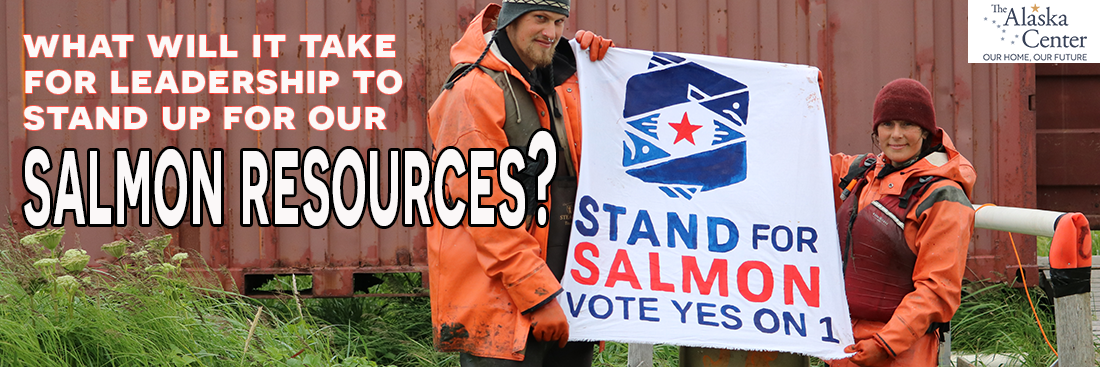“I will not trade one resource for another!” You hear that mealy little zinger quite a lot from political candidates in Alaska. “I will not trade Salmon for Gold!” is a popular spin-off. This mindset conveys that the candidate will be drawing a line in the sand at some point. It begs the question, at what point?
To paint over the possibility that their actions could someday actually cause diminishment of a resource, today’s politicians speak boldly about what they would not trade in some future show-down of resources.
Governor Walker stated in his 2018 State of the State address that his administration “will continue to prioritize healthy salmon habitats that benefit all users.” Those lovely words suffer from a profound disconnect between aspiration and reality, and they too paint over a diminishment.
Walker has taken no steps to “prioritize” salmon habitat during his time in office. His administration has instead opposed a ballot proposition to increase habitat protections and most recently, the Walker Administration set a precedent by denying a clearly legal request by Alaskan citizens to protect salmon habitat in the Chuitna River.
The backbone of the Walker Administration’s denial of the Chuitna river protection relies on an interpretation by DNR Commissioner Andy Mack that, because a company is no longer proposing to dewater and strip mine through the river, there is no need to allow the water reservation to move forward. In essence, since there is not an existential threat to the salmon in this specific river system, you aren’t allowed to protect them.
The Chuitna Citizens Coalition request was carefully crafted under our state’s water reservation law. It was studied, debated, and adjudicated over a nine-year period. It was approved by the Walker Administration, the approval of the in-stream flow reservation was appealed by the Alaska Miners Association and other industry groups, and on reconsideration, the Walker Administration denied the application.
The denial and the interpretation that a river must first be under direct threat before a water reservation is considered constitutes a diminishment of the law. Decreasing the ability of citizens to protect salmon in Alaska is a big step toward a trade-off, one that so many politicians claim they are not willing to make, even while they are making it.
Cheers,
Louie Flora
Government Affairs Director
Share this Post

